
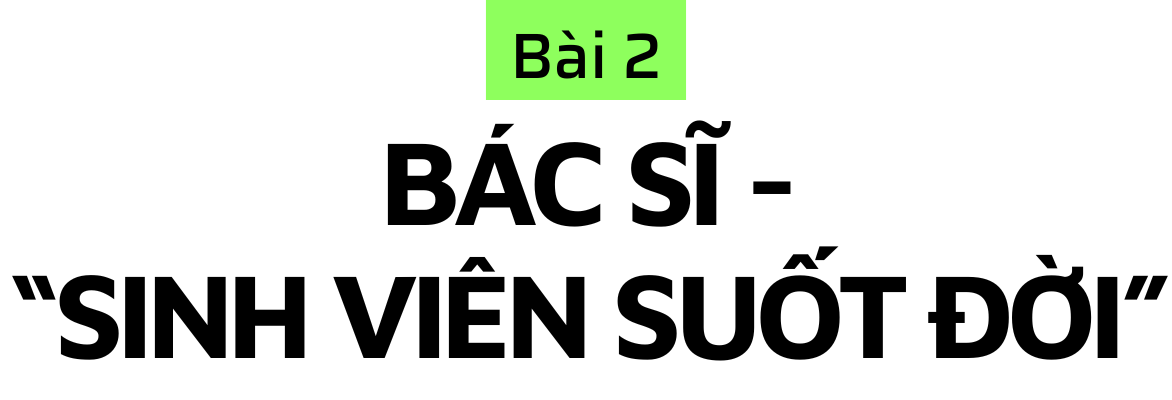
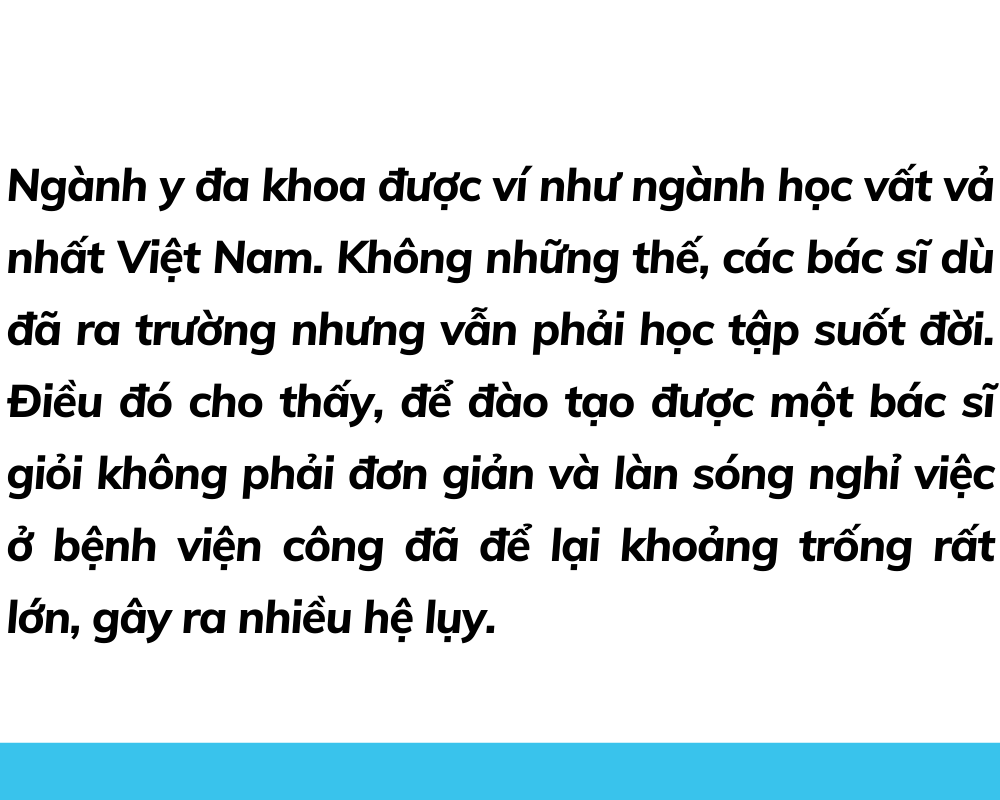
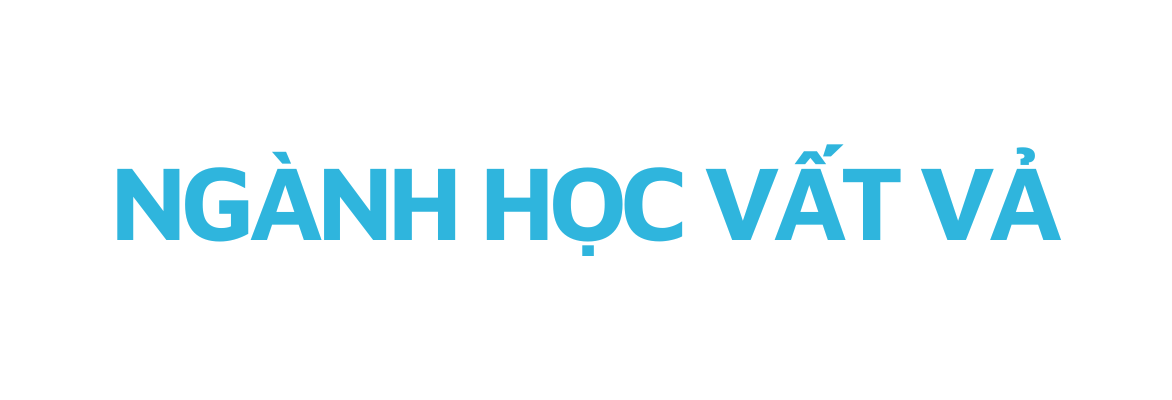
We met Tran Quoc Truong (24 years old, from Yen Thanh district) in the "Job Fair" program held in August 2022 at Hanoi Medical University. Truong has just graduated with a good degree in general medicine - Hanoi Medical University. Truong said that passing the entrance exam to medical school is very difficult, because the entrance scores of these schools are often in the top group. Most of them are valedictorians and salutatorians of the high school graduation exam. However, after entering university, studying is really a big challenge, for 6 years it seems like all you know is studying and taking exams.
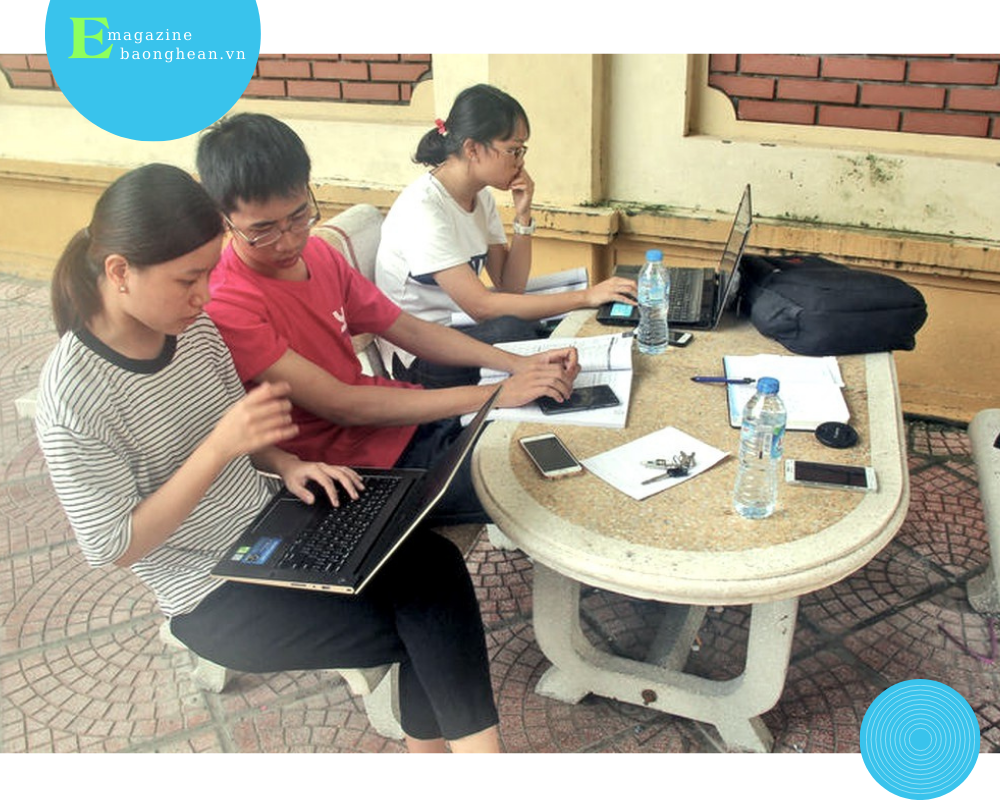
A day of Tran Quoc Truong and other students revolves around the lecture halls and self-study in the lecture halls, libraries or stone benches in the school grounds and dormitories. The amount of knowledge is too much, both theoretical and practical, so general medicine students like Truong have very little time to rest. The classes follow each other so even lunch and dinner are taken care of, sometimes all day long they only have time to quickly eat a bowl of instant noodles or a sandwich and then rush back to studying.
“Each school year has its own difficulties. In the first year, students study basic subjects such as chemistry, physics, biology, and anatomy. They are also chemistry, physics, and biology subjects, but the knowledge here is about 5 times more than in high school combined. Also in this year, students study human anatomy, requiring direct contact with cadavers. That is a big psychological shock. Entering the second semester of the third year, students have to study clinical, then pathology... the knowledge is so vast that it is very stressful. The curriculum for medical students is often calculated by weight instead of books,” Truong shared.
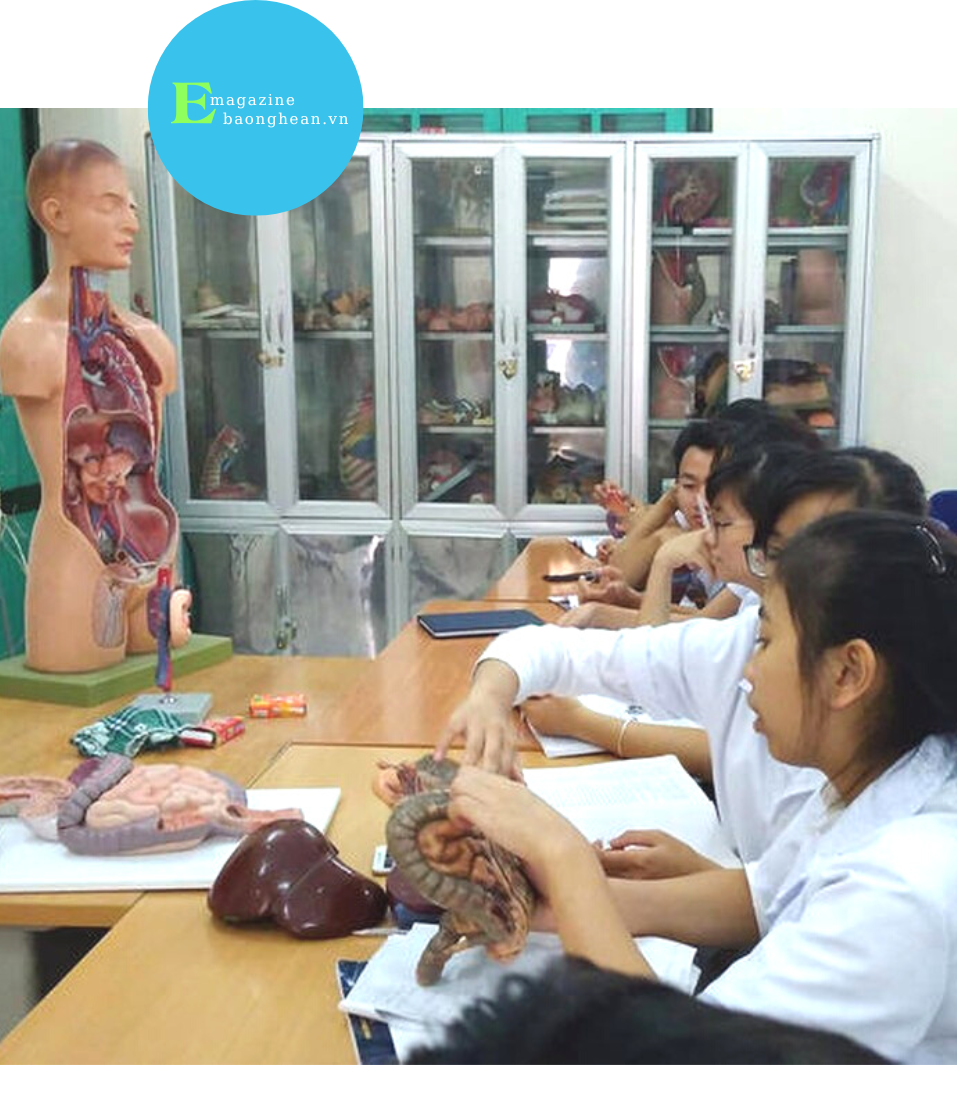
After 6 years of studying at medical school, Tran Quoc Truong’s path of learning has not stopped. Before coming to the “Job Fair” program to “try it out”, Truong had just completed the residency exam. At this point, Truong had passed the exam and he will continue his studies for another 3 years, then work at a medical facility.
In fact, the 9 years of studying at the School are just 2 short steps in the many steps in the lifelong learning journey of a medical practitioner. Doctor Nguyen Hong Truong - Director of Vinh City General Hospital said: "Graduating from the general medicine major at Thai Binh Medical University in 2001, working in Vinh City for a short time, I had to continue studying. First, it took me nearly 1 year to study the orientation specialty. In 2005, I had to spend another 2 years studying specialty I. In 2010, I studied to become a specialist II. During my time practicing, I had to continuously study new specialties, such as spending nearly 1 more year studying urology in Ho Chi Minh City. Currently, I am continuing to study for a doctorate"... In the 21 years since graduating from university, Doctor Truong had to temporarily quit his job, stay away from home for more than 7 years to study and review for exams; not to mention the time spent on self-study, self-research, and learning while working.
Similarly, Dr. Tran Van Cuong - Deputy Director of Nghe An Obstetrics and Pediatrics Hospital said that after working for about 2 years, he had to continue studying to update his knowledge. After more than 20 years of graduating from Hanoi Medical University, he has about 50 degrees and certificates of all kinds, including foreign language certificates from English to French. "Currently, my studies have not stopped. Whenever I have free time, I go to medical websites to learn more about medical knowledge, to see if there are any better treatments for newly acquired diseases in the world... Knowledge in the medical field is endless and constantly changing. A doctor must accept that he is a lifelong student," said Dr. Cuong.
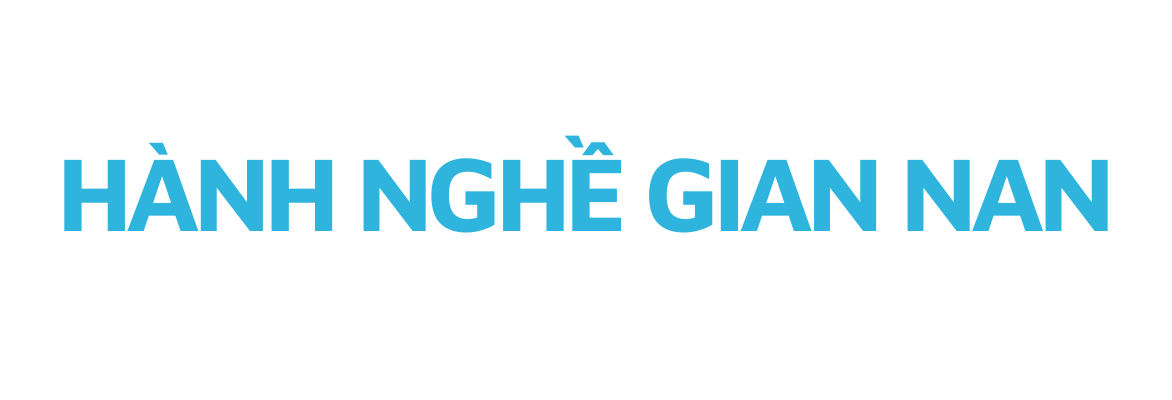
Studying hard and continuously is only part of the difficulty of being a doctor. In the process of practicing their profession, hardships, sacrifices and disadvantages always go hand in hand.
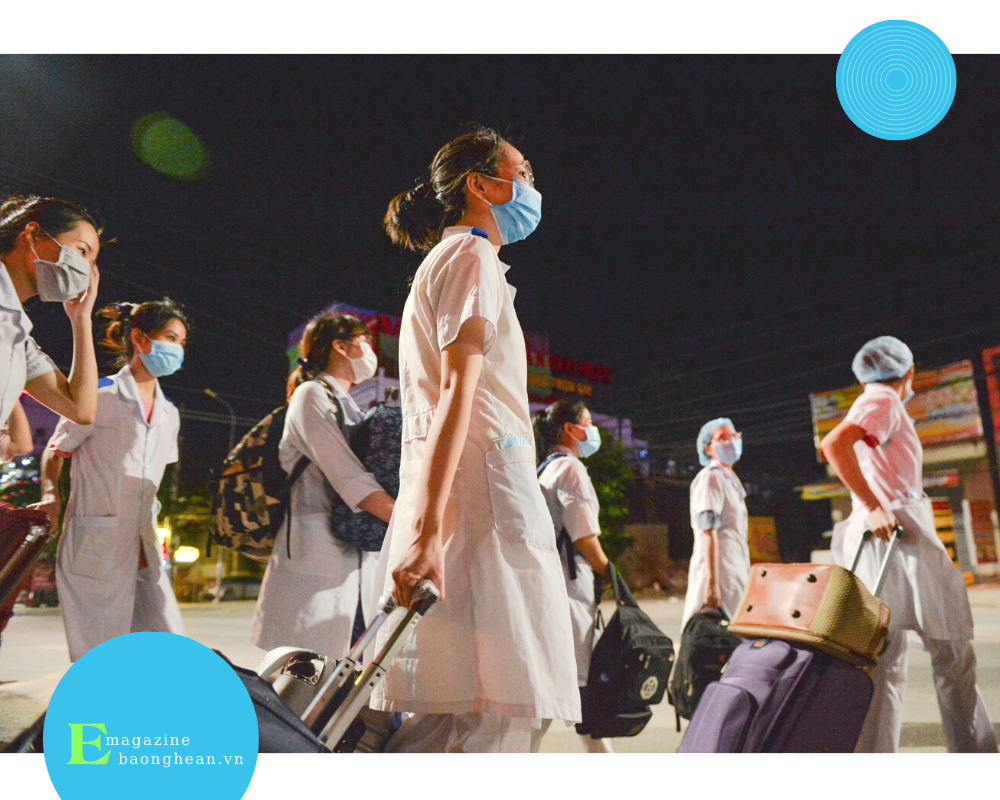
Dr. Nguyen Huu Le - Deputy Director of Nghe An Department of Health shared that in history, due to many reasons, there were periods when doctors could not find jobs after graduating. Many had to work as pharmaceutical representatives, motorbike taxi drivers, traders... to survive; working for free at medical facilities waiting for job opportunities. However, that period is over. Now, the number of medical facilities opening up is very large, doctors after graduating do not lack job opportunities, no longer worry about losing their jobs.
However, when entering the workplace, newly graduated doctors face many difficulties and disadvantages due to the policy mechanism. For example, the basic salary of a doctor (6 years of training) is equivalent to that of other professions (4 years of training). The difference of 2 years of work is equivalent to 1 salary level... In many professions, people can practice immediately after 4 years of study, but in the medical profession, 6 years of study is only basic. For general practitioners, it is necessary to study additional specialized orientation and have enough practice time according to regulations to be granted a practice certificate. If all goes well, a doctor must spend nearly 3 more years to be granted a practice certificate.
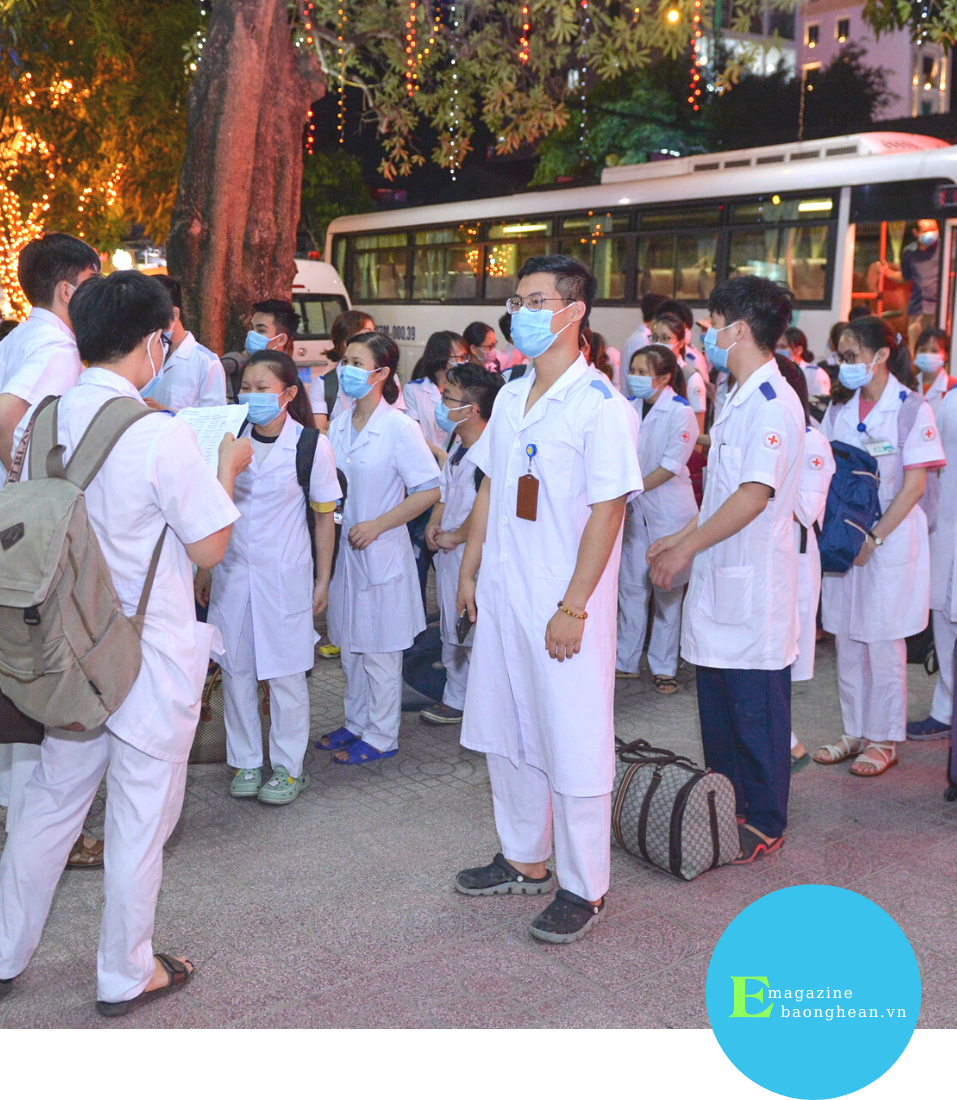
The demands of society on the medical profession are very high, but the regime and allowances of a doctor seem to not meet the needs of life. According to the current regulations on salary and allowances, after 6 years of study and 18 months of practice to be granted a practice certificate, if recruited into a public service unit, a doctor will receive a monthly salary of only over 4 million VND. Meanwhile, during the working process, doctors in particular and medical staff in general must work on shifts, or extend working hours beyond working hours such as examination and emergency. Working overtime has become a natural and very common thing for medical staff.
Dr. Pham Van Dung - Deputy Director of General Hospital 115 said that, working in the medical profession, free time for family is a luxury. "We doctors only get to rest when we finish work. For many weeks, I myself did not get to see my children because I often had to "leave early and come home late", not to mention being away from home for many months to attend extra classes," Dr. Dung said.
In public health facilities, almost no unit can calculate overtime wages, except for organizing and arranging official overtime on Saturdays and Sundays. Calculating overtime wages is also just for show. On-call allowances, overtime, and toxic work are low compared to the salary coefficient and the general level. Only doctors with solid expertise, long-term experience, and the ability to perform specialized techniques have additional surgical allowances, but the total is not worth much... That is why there is a phenomenon of doctors "having longer hands outside than inside", "using their days off and hours off to work for non-public facilities".
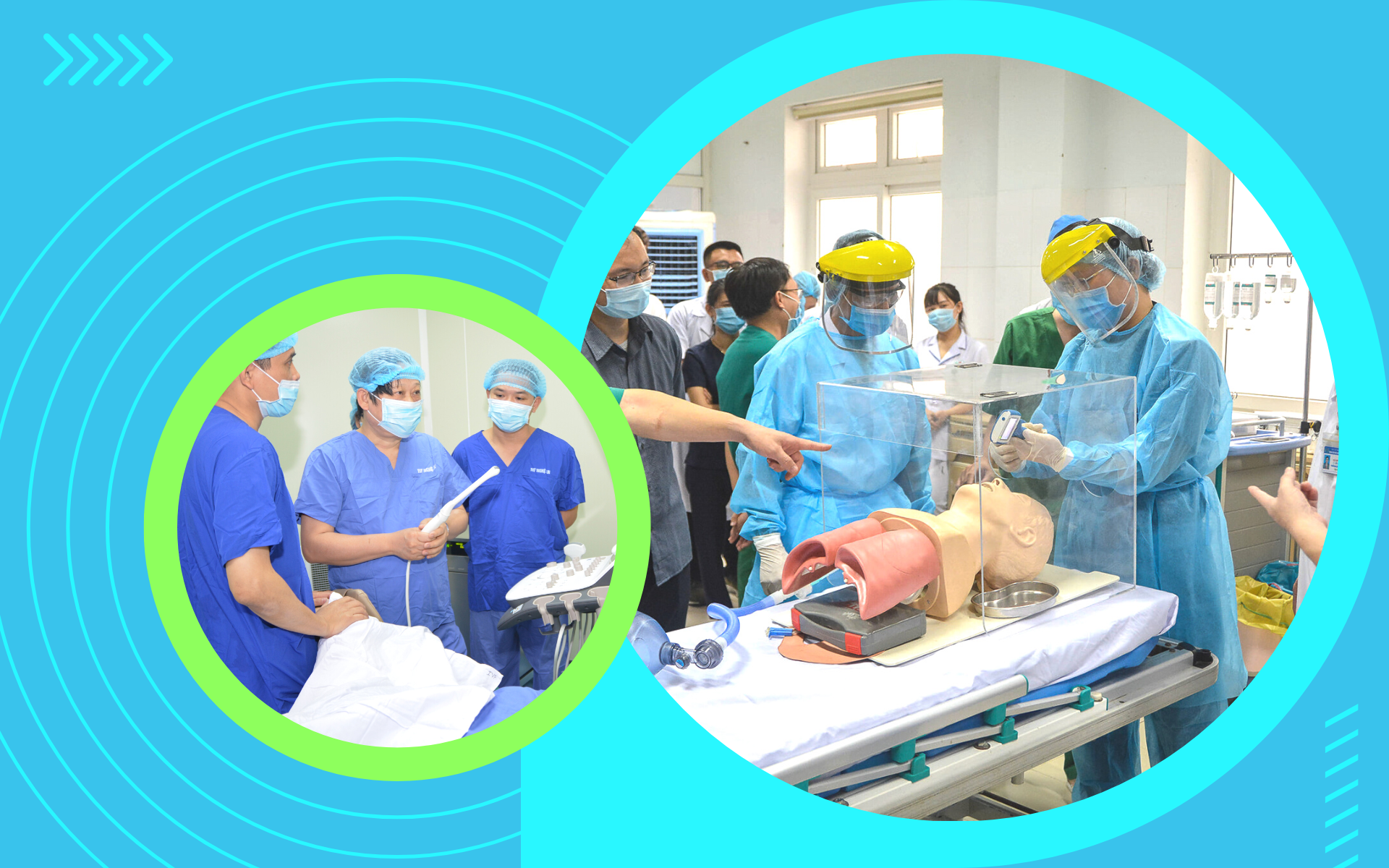
In the past 3 years, the Covid-19 epidemic has been raging. This is the time when medical staff and civil servants are at the forefront of disease prevention and control. They have to work at high intensity, for long periods of time, without days off and without schedules. As in the case of Dr. Que Anh Tram, who works at the Tropical Disease Center (Provincial General Hospital), the number of days she can go home can be counted on the fingers. Even when her father was seriously ill, he could not be there to take care of him when he was dying.
After the Covid-19 pandemic, negative violations and misconducts in the health sector in general, including public health staff, were discovered, which also caused pressure and damage to health staff.
“Health care workers are not afraid of having to face risks and diseases regularly. But sadly, somewhere, health care workers are under too much pressure from society and public opinion. Now, society's requirements are requiring health care workers to be fast, accurate, and correct at the same time. Those who can withstand the pressure and are used to it will stand firm. Those who cannot, will think, worry, and have other options such as quitting their jobs or moving to non-public facilities. That is inevitable,” said Dr. Nguyen Huu Le, Deputy Director of the Department of Health.
